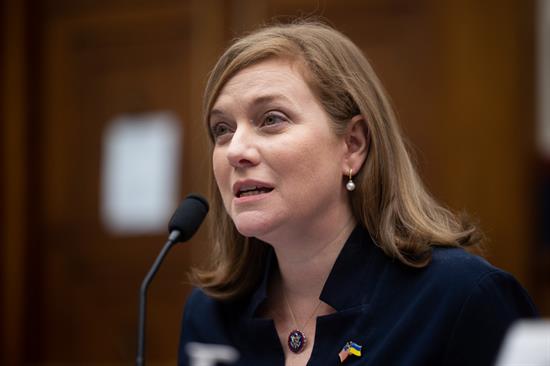In the News
Lawmakers revive offshore wind revenue-sharing billThe Biden administration has expressed concern about the bipartisan proposal.
Washington,
February 10, 2023
Tags:
Energy & Environment
E&E DAILY | A bipartisan group of members from both chambers on Thursday reintroduced legislation that would establish a revenue-sharing system for offshore renewable energy development. It marks the latest attempt by congressional lawmakers from coastal states and districts to ease existing restrictions on how much revenue they can recoup from the dollars that are generated off their coastlines. The "Reinvesting in Shoreline Economies and Ecosystems (RISEE) Act," championed by Rep. Lizzie Fletcher (D-Texas) in the House and Sens. Sheldon Whitehouse (D-R.I.) and Bill Cassidy (R-La.) in the Senate, would allow states to take back up to 50 percent of revenue created by offshore wind energy production along adjacent coastlines, which could then go toward funding coastal restoration efforts. "Along the Texas Gulf Coast, we know all too well the devastating impacts of flooding and disasters as well as the way that visionary projects can help protect our communities," Fletcher said in a statement. "The RISEE Act will help make it possible for us to invest in these vital coastal protection projects by giving states a portion of the revenue generated from offshore wind and energy projects, providing incentive for future projects." The "RISEE Act" would also overhaul the 2006 Gulf of Mexico Energy Security Act, or GOMESA, which sets a cap for how much revenue four states — Texas, Louisiana, Mississippi and Alabama — can collect from oil and gas production in the outer continental shelf. The bill would, specifically, raise the cap from 37.5 percent to 50 percent, with this money also allowing states to pursue coastal rebuilding initiatives. The bill's bipartisan backing could make it a prime candidate for consideration in the GOP-controlled House, especially with two Louisianans in party leadership roles: House Majority Leader Steve Scalise and Rep. Garret Graves. However, the Biden administration back in 2021 expressed some concern about the legislation, with Steve Feldgus, the Interior Department's deputy assistant secretary for land and minerals management, telling senators during a subcommittee hearing that the “RISEE Act” would force the Treasury Department to disburse less revenue to other states (E&E Daily, Oct. 20, 2021). "I think the issue with the 'RISEE Act' is simply a matter of equity for all states," he said at that time. Other House co-sponsors of the bill this time around include Republican Reps. Don Davis of North Carolina, Randy Weber of Texas and Nancy Mace of South Carolina and Democratic Reps. Anna Eshoo of California and Abigail Spanberger of Virginia. |

